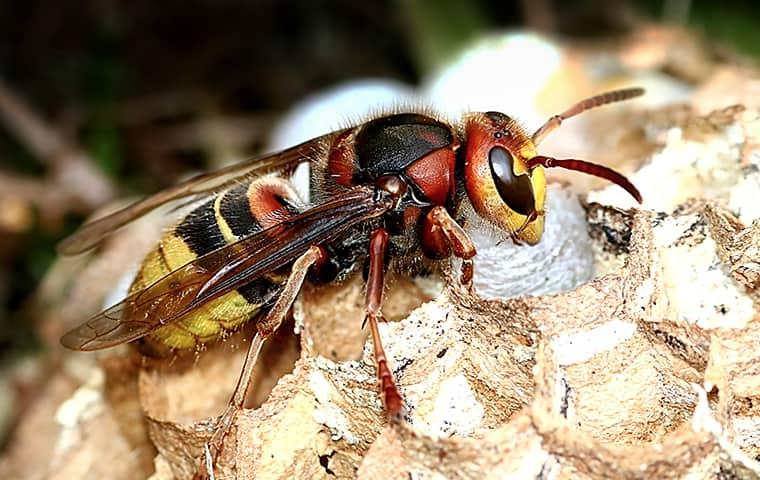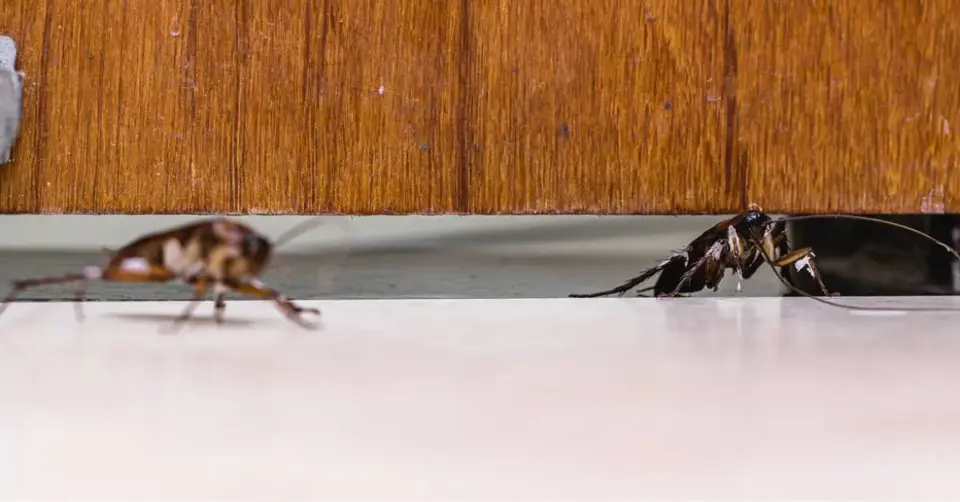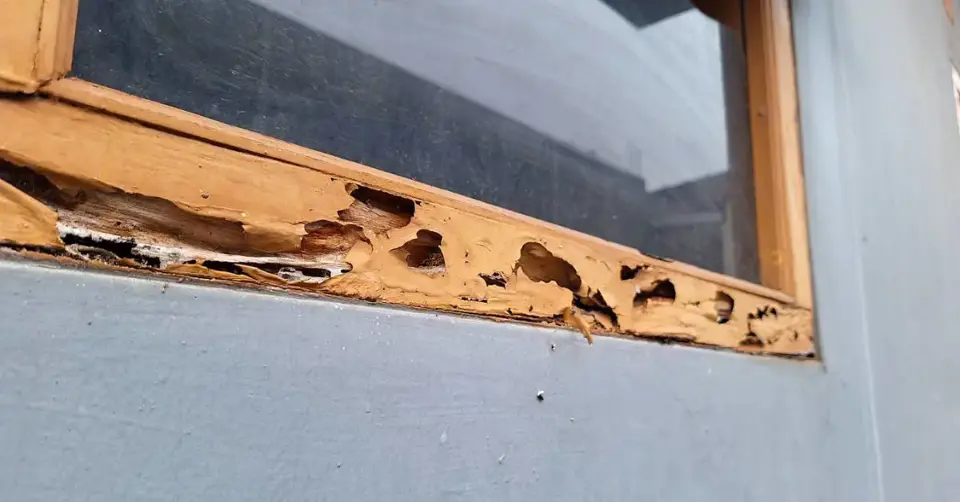

Hornets
What Are Hornets?
Hornets are a type of wasp. The biggest difference between the two is that hornets are much larger than wasps and tend to be a little less aggressive.
Hornets also have smooth stingers which give them the ability to sting a victim multiple times. These insects have long, hairless bodies and narrow waists. They come in a variety of color patterns depending on the exact species, some of the most common include:
- Yellow and black
- Yellow and brown
- White and black
Hornet Frequently Asked Questions (FAQs)

Are Hornets Dangerous?
Hornets are not as aggressive as other types of wasps like the yellow jacket but will attack if they or the nest is being threatened.
The venom hornets possess can cause serious health problems in those who are allergic. A hornet sting has the potential to trigger an anaphylactic shock in people with a severe allergy or in the cases of repeated stings.
In addition, hornet stings are well-known for being extremely painful, with pain and swelling lingering for hours or even days.
Hornets are a potentially serious pest problem and you should never underestimate them. Never intentionally approach hornets or their nesting sites.
Why Do I Have a Hornet Problem?
Our yards often provide ideal nesting areas for hornets as they provide plenty of access to food and water. Hornets can hunt for insects and feed on plant nectar in a variety of outdoor spaces. Properties with or near wooded areas, a lot of trees, gardens, and landscaping plants are especially attractive to these pests.
Where Will I Find Hornets?
Hornets tend to place their nests up off of the ground in sheltered locations away from people and predators. They construct their nests from a paper-like material the hornets create by mixing wood fibers and their saliva.
Tree branches, dense shrubs, and areas under roof eaves are some of the hornet’s most common nesting sites. Some species prefer to place their nests in open cavities like tree voids, attics, or wall voids.
Overwintering hornets (queens) hide behind pieces of tree bark, within rotten logs or tree stumps, and behind siding found on our homes and garages.
How Do I Get Rid of Hornets?
Let the professionals at All-Safe Pest & Termites get rid of hornets from your property. We can quickly eliminate current hornet infestations and provide the year-round protection needed to prevent future problems with these stinging pests.
Locally owned and family-operated, All-Safe Pest & Termite is the best choice to get rid of hornets from your Dallas residential or commercial property. Discover why your neighbors choose All-Safe Pest & Termite for their pest control needs. Contact us today!
How Can I Prevent Hornets in the Future?
Prevent problems with hornets by partnering with All-Safe Pest & Termite and by implementing the following prevention tips:
- Keep hornets out of your home by inspecting its exterior and caulking any holes or gaps in the siding.
- Place tight-fitting lids on chimneys and mesh covers over vents.
- Repair roof damage.
- Remove fallen trees, tree stumps, and excess piles of wood from your property to limit favorite nesting spots.
- Cut trees branches and shrubbery back away from your home’s exterior walls.
- Don’t overplant flowering vegetation on your property, especially near your home’s exterior.
- Get rid of water sources by keeping gutters clear of debris and filling in low-lying areas on your property.

Get Your Free Estimate
$50 Off Your Initial Service When You Book Online!

How We Can Help You Our Services





.jpg.2601291047352.webp)
